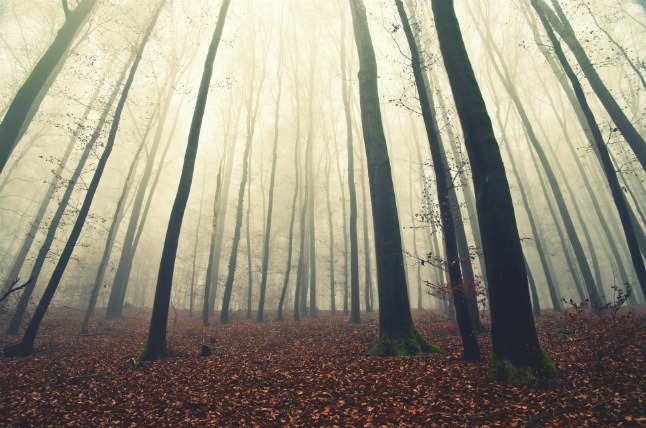How To Survive: Lost In The Backcountry!
Getting lost happens. And when it does, there are no hard and fast rules about what your first step should be. It depends on the environment, the season, the time of day, the situation—are you injured or just turned around?—and your knowledge of the land. We asked Tony Nester, survivalist and owner of Flagstaff-based Ancient Pathways outdoor survival school, for basic first steps. The good news is that there are steps you can take to immediately improve your chances of survival. The bad news is that the most important steps were ones you should've taken before you even left.
Hedge your bets.
"Leave a travel plan. Tell somebody where you're going and when you're overdue. That way, if you say you'll be back at 6pm, and 8pm rolls around, you've got a two-hour window worked out so your spouse or roommate can make a call to search and rescue to get you out of there. Statistically, if you look at people who get lost in the wilderness every year in North America—and it doesn't matter if it's desert, tropics or mountains—somewhere around 80 percent of them are injured and hypothermic. If you've left a travel plan with someone, and you take a fall and suffer a major injury, you won't have to spend the night out there trying to stay warm and find water and everything else." If you saw 127 Hours, you know this one already.
Be prepared.
"Bring some basic gear. The priorities boil down to what I call the 'Big Five.' There are five things humans need to take care of, regardless of environment: 1) Shelter. You have to be able to procure shelter. That might mean putting up a tarp, holing up in a cave or building a lean-to. 2) Water. You need to find water and purify it to stay hydrated. 3) Fire. It can keep you warm, you'll probably have to boil water at some point, and you can use it to signal at night. 4) Signal. You have to be able to draw searchers to you, whether it's with a signal mirror or a personal location beacon or, nowadays, we're getting a lot more rescues with cell phones because of the increased coverage. 5) First Aid. You have to be able to take care of cuts and scrapes, stabilize spinal injuries or even handle dehydration. A survival kit should have, at minimum—whether you purchase one or make it yourself—a first aid kit, a signal mirror, a fire starter, a tarp and some purification tablets." Though technically it's not survival gear, a GPS unit can't hurt, either.
Stay put.
"If you left a travel plan, and somebody's sending help, then stay put. If searchers will be coming for you, you just want to take care of the Big Five. The last thing you want to do is wander outside of the search radius, and extend their efforts—and your predicament—into days rather than hours. That happens a lot with kids; they panic, and they keep pushing on and getting farther and farther away from searchers. Your first priority, in that case, is to take care of your core body temperature. That could mean putting up a lean-to and starting a fire or, if you're in the desert, it might mean holing up in the shade. Then look around for water, whether you're melting snow or looking for a water source nearby."
Or don't.
"If you didn't leave a travel plan, then you are on your own. You've just got to use that tool between your ears. One thing people rarely factor in are the physiological things that'll be happening if you've been without food or water—you're just going to be tired. For myself, I've been without food under survival conditions for up to four days, and you have these highs and lows of energy. When you get a burst of energy, that's when you want to move, if you're going to. You'll feel lousy that first day without food because of low blood sugar, but once your reserves kick in—anywhere from 24 to 36 hours in a fasting state—that's when you'd want to pick up and move, and try to find a road or get to a vantage point."
Tony Nester has taught outdoor survival courses across the desert southwest and Rocky Mountains for 20-plus years through his Ancient Pathways school. Though he's never lost in the wilderness he does, on occasion, get "turned around."
